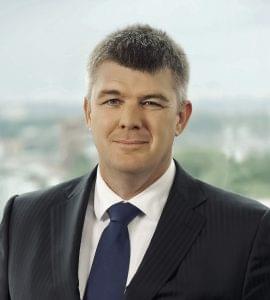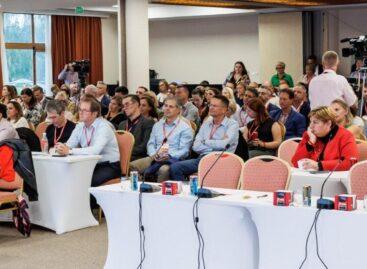Magazine: Business risks constitute the biggest challenge for Hungarian CEOs

Anita Mekler
tax and legal partner
PwC Magyarország
PwC Hungary, in partnership with the Confederation of Hungarian Employers and Industrialists (MGYOSZ), asked the opinion of Hungarian CEOs and summarised the results for the seventh time. Anita Mekler, a tax and legal partner of PwC Hungary told our magazine that Hungarian CEOs proved to be just as optimistic as international ones in the global survey. However, CEOs in Hungary named different challenges than foreign ones. Global CEOs mentioned global problems such as terrorism, geopolitical issues, climate change, etc. (these were up 20 percentage points from last year), while in the eyes of Hungarian CEOs these global problems have become less important, and they focused on business risks instead, for example the lack of workforce and other factors related to this. Ms Mekler told: when conducting the interviews, they could feel that new things – technologies, challenges, trends – were driving CEOs towards new roles.

Nick Kós
CEO
PwC Magyarország
For Hungarian CEOs Germany is still the most important target market, but Romania replaced the USA in the second place. On the global stage we can see that the USA got back the No.1 position from China. In Hungary 89 percent of CEOs are hopeful that they can increase their revenues. Nick Kós, the CEO of PwC Hungary added that 2017 was a difficult year for decision-makers all over the world, but a stabilisation process unfolded at a global level. Even the worries about the future of the eurozone – which started after Brexit vote – died down.
When asked about the challenges, nearly 60 percent of CEOs said there is growing pressure on them about reaching their targets as quickly as possible; 37 percent said the same about personal responsibility in case they break certain rules. Ms Mekler revealed: the proportion of CEOs that would like to recruit new workers has been above 50 percent for years. They have realised by now that a prerequisite of successful recruitment is the company being attractive to workers. About three quarters of respondents said that they do some kind of satisfaction survey at the company. The 165 Hungarian CEOs interviewed opined that the government’s most important tasks are workforce-related. CEOs would also welcome a stable and simple tax system.
Back in 2014, when asked about disruptive factors, CEOs said their biggest concerns were changes in the industry’s regulations and consumer behaviour. This year three quarters of respondents mentioned technological changes and every second CEO are still afraid of a sudden rise in the number of competitors, and changes occurring in connection with distribution channels or in customer behaviour. 77 percent of CEOs said they do more tasks digitally than last year and 62 percent work outside of their office several times. Three quarters of CEOs have a LinkedIn profile.

Company heads said the main advantages of globalisation were the free global market of resources and widespread internet access. MGYOSZ president Dr Péter Futó told: globalisation has both positive and negative effects on the economy – as a matter of fact the impact is even bigger here than in other fields of life. The president believes it is a major problem that the Hungarian population is aging, that many leave the country to work abroad and that the current system of educating skilled workers isn’t good enough. //
Related news
PwC Consumer Loyalty Outlook: Loyalty Enters a New Era
🎧 Hallgasd a cikket: Lejátszás Szünet Folytatás Leállítás Nyelv: Auto…
Read more >Record-breaking Black Friday in online orders
🎧 Hallgasd a cikket: Lejátszás Szünet Folytatás Leállítás Nyelv: Auto…
Read more >We took you on a flight! (Part 2)
🎧 Hallgasd a cikket: Lejátszás Szünet Folytatás Leállítás Nyelv: Auto…
Read more >Related news
Festival buzz at the 60th anniversary EuroShop trade fair
🎧 Hallgasd a cikket: Lejátszás Szünet Folytatás Leállítás Nyelv: Auto…
Read more >No matter how much you save, food and gadgets always take the money
🎧 Hallgasd a cikket: Lejátszás Szünet Folytatás Leállítás Nyelv: Auto…
Read more >Historic price reduction at ALDI
🎧 Hallgasd a cikket: Lejátszás Szünet Folytatás Leállítás Nyelv: Auto…
Read more >






